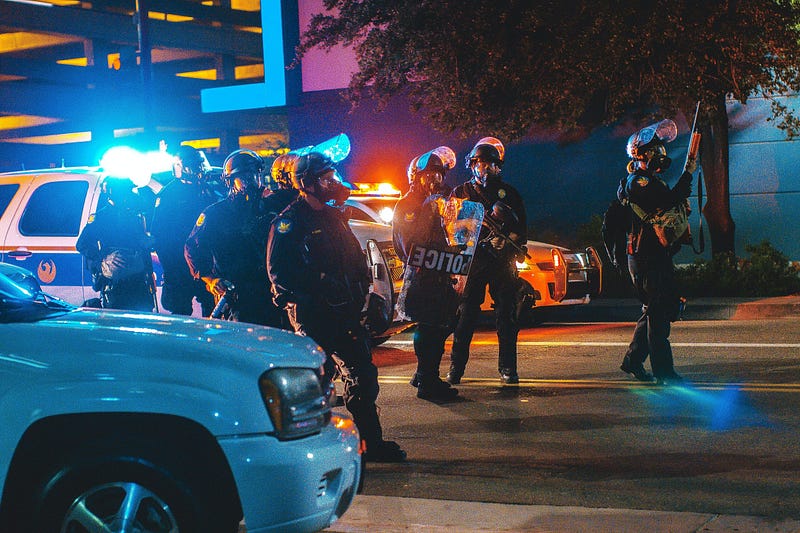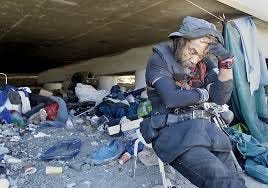SF recall is about power, not crime.

In the days of royalty, kings and nobles exploited their subjects by promising to protect them. They built huge castles where peasants could hide if attacked. They hired armored knights with sharp swords to keep enemies away.
In return, the lords owned the people (called “serfs” or “villeins.”) Serfs had no rights and owned nothing. Serfs did all the work, and nobles took most of the products and had sexual rights to all the women. If serfs got out of line, the knights could turn the swords on us, but without their protection, we’d have to face bandits and invading armies alone. Most people chose or were forced into the perceived safety of rulers’ protection.
This was the European system, now known as feudalism, but similar systems arose in much of the world. Centuries later, desire for safety still runs our lives. Cities aren’t walled; we don’t have serfs, but we are “protected” from (nonexistent) outside invaders by our country’s armies, and from nameless bad guys by our armed police. We are constantly warned of external and internal dangers by our media.
Just like in medieval times, the armed forces mainly protect the property of those who have against the have-nots. They use our desire for safety to enrich themselves, spending billions on police, prisons, weapons, and wars. But does any of this protection actually make us safe?
Safety in San Francisco
The fight over safety is happening right now with the recall campaign against district attorney Chesa Boudin in San Francisco. On social media and in the words of recall groups like Safer SF Without Boudin, I read messages like “We just want safe streets. That doesn’t make us right wingers.”
Maybe they’re not, but the recall takes society to the far Right. San Francisco-based journalist Annie Lowrey wrote about the recall in The Atlantic. It’s pretty balanced and reports studies showing that Boudin’s less-punitive policies have not increased crime, while acknowledging that he has made mistakes that have hurt people. Her overall conclusion seems to be that Boudin’s policies are mostly right, but he needs to do them better.
But The Atlantic, an unofficial organ of the US ruling class, titled the story “The People of SF vs. Chesa Boudin,” with a picture of Boudin that looks like a mug shot and with the subtitle, “San Franciscans do not feel safe and secure.” It’s pretty clear what side the media are on. SF residents have been subjected to a long series of stories about a crime wave in San Francisco, while police department statistics show crime rates are roughly unchanged under Boudin.
Nationwide, Lowrey writes that, A “crime wave” wave has overtaken the media. Mentions of the phrase more than doubled from 2019 to 2021 in major U.S. print publications; the number of minutes the big cable-news networks spent on crime increased exponentially.
Crime wave publicity is one reason people feel less safe. Other reasons contribute to feelings of insecurity, and most have nothing to do with crime. They reflect a society that is falling apart. A study in SSM Population Health found that “neighborhood disorder:” such things as broken sidewalks and vandalized buildings, make people feel less safe, just as much as reports of crime or actual crime.
What could more disorder a neighborhood than mass homelessness? Though homeless people rarely commit crimes, maybe beyond shoplifting food, thousands of people sleeping in doorways or in tents make a city seem less livable and less safe. They remind everyone of the precariousness of our lives in American capitalism.

The pandemic made people feel less safe. People were told to stay home; the air itself was unsafe to breathe. Economist Jennifer Doleac of Brookings Institution found in studies that fewer people on the streets mean more actual and felt vulnerability to crime. “Having more eyes on the street, having more people out and about — it genuinely does increase public safety,” she told Lowrey. The insecurity people felt, amplified by media, was attributed to fear of crime, and the crime has been attributed by recall advocates to DA Boudin.
Felt safety or actual safety?
It’s deeply natural to want safety. Safety is one of the primal urges of living things; seeking safety kept our ancestors alive for a million years. But how much will we give up to be safe? A dusk-to-dawn curfew would be safe. Armed officers on every corner stopping and frisking pedestrians for weapons might feel safe (to the people who weren’t being stopped.) Locking up millions of ‘bad’ people might give ‘good’ people a sense of security.
Such measures have all been tried during the last decades. But do they actually make people safer? Studies show the opposite is true. Lowrey writes that, “Lenient tactics like Boudin’s lower recidivism rates and thus crime rates in the longer term, as Jennifer Doleac and others demonstrated in a recent study.” Dr. Doleac said of her own results. “We were surprised. It seemed obvious to me that we would see some increase in criminal behavior, if people are not being prosecuted and punished. That’s not what happened. Crime went down.”
Doleac’s result make perfect sense to me. Sending people to prison is like sending them to crime training school. It also takes away their abilities to make a living when they get out, because of discrimination against convicts. And it disrupts the communities from which they come, creating new generations of criminals
Just letting troubled people go doesn’t work either, IMO. Offenders need counseling; they need to compensate victims; they may need drug treatment or close supervision. SF doesn’t have enough of those programs yet, but as research shows, doing nothing is still better than prison in most cases that don’t involve violence.
“Increased drug arrests, resulting directly from the War on Drugs, consistently increase overall, violent, and property crime.”Jared Grossi PhD
Tough-on-crime DAs have seen increases in crime rates similar or greater than SF’s. All this was observed years ago with the War on Drugs. Making street drugs illegal and harshly punishing their use and sale made everyone less safe. Sociologist Jared Grossi found that, “Increased drug arrests, resulting directly from the War on Drugs, consistently increase overall, violent, and property crime.”

Boudin was elected to stop such failed policies, and he is stopping them. Yes on H (Recall) people want to bring them back.
No safety in a police state
When millions of people are incarcerated, as in the US, oppressed communities struggle to survive and are less able to demand equal rights. Meanwhile, under tough-on-crime prosecutors, upper class criminals like the crooked lawyers and employers whom Boudin’s office investigates can pursue their scams while DAs and police focus on drug dealers and petty thieves.
Corporate media has shown its ability to make Americans fear whomever our rulers want us to fear, foreign or domestic. Historically, Blacks, Latinos, Indigenous, Asians, and Jews (at times) have been targeted. Those seen as threats, like the Black and Brown youth the NY Police Department targeted for Stop and Frisk operations, and those imprisoned in the Drug War, are victims as much as a shop owner hit by shoplifters. But victims of tough-on-crime policies are working class, so their lack of safety doesn’t matter.
This is what is at stake in the SF DA recall. Do we want to feel safe, even if the result is more crime in the future, more police violence, inequality, and suffering for the working class now? Or do we want to address the causes for our fear and create communities where people are housed and, if needed, receive help putting their lives together?
As Boudin himself has said, he can’t create alternatives to incarceration on his own. We need more people and more resources than the DA’s $70 million budget. San Francisco needs to get on justice reform and housing the homeless if we want to really be safe. I recommend we start by voting No on Prop. H. Keep Chesa and help his programs work.
— — —
Thanks for reading! Please comment, share, or steal. Follow me on Twitter, on Facebook or on Medium.com. Hire me for freelancing, editing, or tutoring on Linked In
